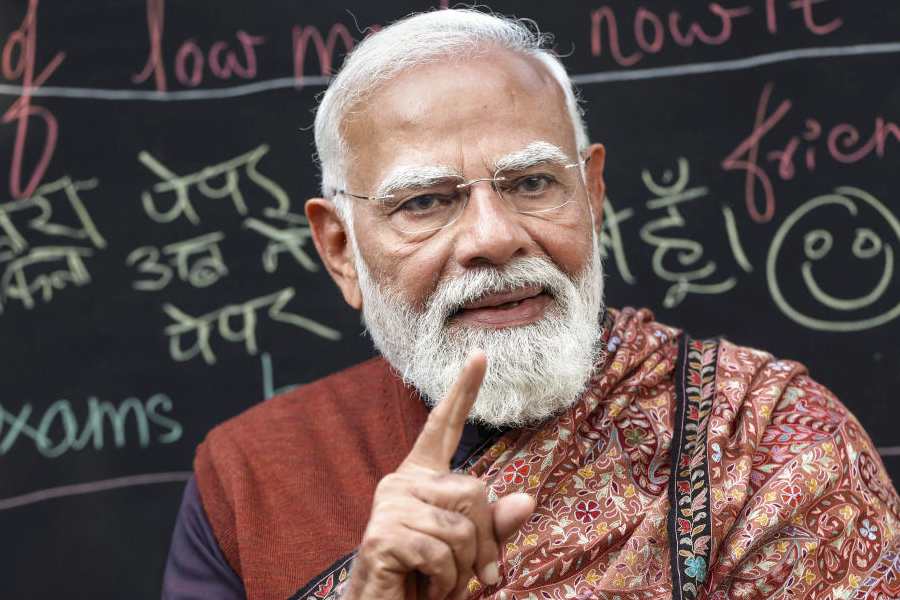New Delhi, Aug. 20: The IITs could from next year award marks to admission seekers who adopt the correct procedure while answering a question even if the answer is incorrect.
Since the Joint Entrance Examination (JEE) Advanced, conducted for admission to BTech courses, only sets multiple-choice questions where a candidate has to select one of four answer bubbles, the IITs will need to take special measures to determine the process adopted by the student.
Two members of the IITs' Joint Admission Board (JAB), which discussed the matter today, told The Telegraph that the question papers may have space for students to work the answers out instead of merely selecting a bubble. Most questions in the IIT Advanced involve equations.
"If a student has written the correct equation but not arrived at the right answer, he could still get some (as yet unspecified) marks," a JAB member said.
The other member said the move would help minimise the influence of private coaching institutes, many of which train students to eliminate the wrong options rather than work out the right answer.
"Because of such training, the IITs are getting students who lack critical analytical skills," he said.
An IIT Bombay teacher explained the limitations of the current practice of evaluating students only on the basis of the correctness of their answers. "It leads to a student who selected the right bubble through guesswork receiving the same marks as another who spent 10 minutes solving the problem," he said.
But grey areas remain. The board members could not say whether a student who has hit on the right answer through an incorrect method will have any marks deducted, nor whether it will be mandatory to write the equations to show the reasoning adopted.
With the JEE Advanced set to become an entirely computer-based exam from next year, equations will have to be keyed in for the examiner to evaluate them. This will require special expertise with the keyboards that is not now taught in schools, apart from taking up a lot of time.
It's not clear whether the duration of the test will be lengthened to allow the students the additional time they would need to write the equations.
One reason for the proposal has been the flawed questions in this year's JEE Advanced, which forced the IITs to award 18 grace marks to every student.
Some candidates had challenged this in the Supreme Court, arguing that the grace marks should have been awarded only to those who had attempted the defective questions, as was the practice till 2006.
The apex court briefly stayed the counselling process and later asked the IITs to explain before the next hearing, on October 10, how they plan to reduce errors in question papers.
Now the IITs are likely to hold up the latest proposal, which rewards a student's reasoning independently of the correctness of his solution, as one way to get round the problem of invalid questions that have multiple correct answers or none.
Another option is to have a properly screened, pre-prepared question bank of 25,000 questions that the IITs fear would be open to leaks.
At its meeting at IIT Madras today, the JAB discussed this option as well as a proposal to rank each question on a difficulty scale of one to 10 and setting a mix of questions of varying toughness.
IIT aspirants have to first clear the JEE Main, conducted by the Central Board of Secondary Education. Nearly 12 lakh students take the JEE Main on average, and around 2.5 lakh are allowed to take the JEE Advanced.
IIT Madras was in charge of the JEE Advanced this year. Of the 2.5 lakh eligible candidates, 1.6 lakh took the test and 50,000 qualified. IIT Kanpur will be in charge of the exam in 2018.










